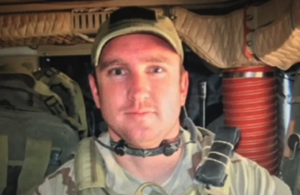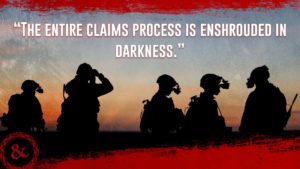Veterans dedicate their lives to serving and protecting their country. In return, they deserve access to quality medical care through military healthcare systems such as the Department of Veterans Affairs (VA) and other military medical facilities. Unfortunately, not all veterans receive the standard of care they are entitled to. Medical negligence within these systems can lead to devastating consequences, affecting the health and well-being of those who have already sacrificed so much.
This blog will explore what constitutes military medical negligence, the legal rights of veterans in such cases, and how affected individuals can pursue justice.
Understanding Military Medical Negligence
Military medical negligence occurs when healthcare providers fail to meet the accepted standards of care, resulting in harm to the patient. Unlike ordinary medical malpractice, cases involving military healthcare systems are subject to unique rules and regulations that often make pursuing legal recourse complex.
Examples of Military Medical Negligence
Some common scenarios that may constitute negligence include:
- Misdiagnosis or Delayed Diagnosis: A failure to diagnose critical conditions like cancer or PTSD in time can lead to severe consequences.
- Surgical Errors: Mistakes during surgeries, such as operating on the wrong body part or leaving surgical instruments inside the patient.
- Medication Errors: Prescribing incorrect dosages or medications incompatible with a patient’s condition.
- Failure to Provide Proper Post-Treatment Care: Ignoring complications or failing to schedule follow-up care.
Unique Challenges for Veterans Pursuing Claims
Veterans often face challenges when pursuing legal recourse for medical negligence. The Feres Doctrine, for example, bars active-duty service members from suing the federal government for injuries sustained in the line of duty, including medical malpractice. While this doctrine applies primarily to active-duty personnel, it does not prevent veterans from pursuing claims under certain conditions.
Legal Options Available to Veterans
While the legal framework for military medical negligence is complex, veterans do have pathways to seek justice and compensation.
The Federal Tort Claims Act (FTCA)
The Federal Tort Claims Act allows veterans to file lawsuits against government entities, including VA hospitals, for negligence by federal employees. However, pursuing a claim under FTCA involves strict guidelines, including:
- Filing an administrative claim with the VA before pursuing legal action.
- Providing proof of negligence and demonstrating how it caused harm.
- Meeting a two-year statute of limitations from the date the malpractice occurred or was discovered.
The Camp Lejeune Justice Act
Legislation such as the Camp Lejeune Justice Act provides another avenue for veterans affected by negligence related to contaminated water exposure. While this act targets specific cases, it demonstrates that legal recourse is possible when negligence occurs within the military healthcare system.
State Malpractice Laws
In cases where veterans receive treatment at non-VA facilities, state malpractice laws may apply. Veterans can pursue claims against civilian healthcare providers who fail to meet the standard of care. These cases follow the same principles as traditional medical malpractice lawsuits but require careful legal navigation to ensure jurisdictional compliance.
Steps Veterans Should Take When Pursuing Legal Action
Filing a claim for military medical negligence involves several critical steps. Each stage requires careful attention to detail and often benefits from the expertise of an experienced attorney.
1. Document the Negligence
Gather all relevant medical records, including:
- Treatment plans
- Diagnostic reports
- Communication with healthcare providers
Having thorough documentation strengthens the case by providing evidence of negligence.
2. File an Administrative Claim
Before filing a lawsuit under the FTCA, veterans must submit an administrative claim with the appropriate government agency. This claim outlines the details of the negligence and specifies the compensation being sought.
3. Seek Legal Representation
Navigating the legal system, especially in cases involving military entities, is complex. Consulting with an experienced attorney specializing in military medical negligence ensures that veterans understand their rights and have the support they need to build a strong case.
4. Understand Compensation Possibilities
Successful claims may result in compensation for:
- Medical expenses
- Lost wages
- Pain and suffering
- Emotional distress
An attorney can help determine the full scope of damages eligible for compensation.
Why Legal Support is Crucial
Veterans pursuing medical negligence claims face an uphill battle. From navigating federal laws like the FTCA to overcoming procedural barriers, the process can be overwhelming. Partnering with a legal team experienced in handling military medical negligence cases provides essential benefits, including:
- Expert Knowledge: Attorneys familiar with the nuances of military law can identify opportunities and potential challenges unique to these cases.
- Stronger Case Building: Legal professionals can collect evidence, secure expert testimony, and prepare the case for trial or settlement negotiations.
- Peace of Mind: Veterans can focus on their recovery while their legal team handles the intricacies of the case.
How Khawam Ripka LLP Can Help
At Khawam Ripka LLP, we understand the sacrifices veterans have made and are committed to advocating for their rights. Our team of experienced attorneys specializes in military medical negligence cases, helping veterans navigate complex legal systems to achieve justice.
With a proven track record of success, we take pride in offering personalized legal solutions tailored to the unique needs of each veteran we represent. Whether you’re filing a claim under the FTCA, seeking recourse for medical errors at a VA hospital, or exploring options under state laws, our team is here to guide you every step of the way.
Conclusion:
Veterans affected by military medical negligence deserve accountability and compensation for the harm they’ve endured. While the legal process may seem daunting, understanding your rights and seeking the support of experienced legal professionals can make a significant difference.
If you or a loved one has experienced medical negligence at a military or VA medical facility, don’t wait. Contact Khawam Ripka LLP today for a consultation. Let us help you take the first step toward justice and ensure that your voice is heard.

 Call Now- Open 24/7
Call Now- Open 24/7




